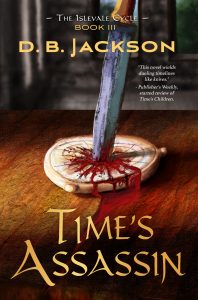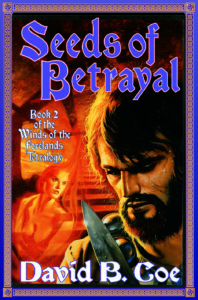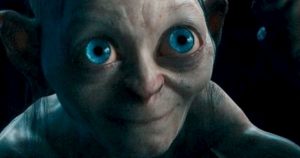Continuing my Professional Wednesday feature on “Beginnings, Middles, and Endings,” (previous posts can be found here, here, here, and here) I now turn to endings. And I will begin by stating the obvious: The ending to our story is likely the most important part of the story arc. Yes, the beginning hooks our reader, which is crucial. And the vast middle carries the plot and the character arc, which is even more essential.
But a book can recover from a weak beginning if its narrative and characters are strong enough, and a flaw in our plot line can be overcome with compelling character development. There is, however, no recovering from a poor ending. Even if the rest of the story is perfect, a narrative climax that fails to fulfill the promise of those early pages and/or a denouement that leaves readers unsatisfied can spell doom for a novel or piece of short fiction.
So, how do we get it right? What are the necessary components of a “good ending?”
 Those are not easy questions to answer. As with beginnings and middles, there are as many ways to approach an ending as there are stories to be written. Different authors like to do different things with their closing chapters. And so, again as with the other parts of story structure, we can learn how to write good endings, in part, by reading as many books and stories as possible. Guy Gavriel Kay’s stand-alone fantasy novel, Tigana, has one of the finest endings of any book I’ve ever read. It is haunting and beautiful and — surprisingly — uncertain. But it is incredibly effective. Of all the endings I’ve written, I believe my favorite is the closing to Time’s Assassin, the third and final book of The Islevale Cycle, my time travel/epic fantasy trilogy. Why do I think it’s the best? Because it ties off all the loose ends from my narrative. It hits all the emotional notes I wanted it to. My characters emerge from those final pages changed, scarred even, but also in a place of growth and new equilibrium. Also, it’s action-packed and, I believe, really well-written.
Those are not easy questions to answer. As with beginnings and middles, there are as many ways to approach an ending as there are stories to be written. Different authors like to do different things with their closing chapters. And so, again as with the other parts of story structure, we can learn how to write good endings, in part, by reading as many books and stories as possible. Guy Gavriel Kay’s stand-alone fantasy novel, Tigana, has one of the finest endings of any book I’ve ever read. It is haunting and beautiful and — surprisingly — uncertain. But it is incredibly effective. Of all the endings I’ve written, I believe my favorite is the closing to Time’s Assassin, the third and final book of The Islevale Cycle, my time travel/epic fantasy trilogy. Why do I think it’s the best? Because it ties off all the loose ends from my narrative. It hits all the emotional notes I wanted it to. My characters emerge from those final pages changed, scarred even, but also in a place of growth and new equilibrium. Also, it’s action-packed and, I believe, really well-written.
And speaking only for myself, since I am but one writer, I would say that those are the main things I want my endings to accomplish. Let me list them again, with a bit more explanation:
1) Offering a fitting, exciting climax to my narrative. This can be considered as the ending of the middle, or the beginning of the ending. I include it here because I think of it as the latter. Most of us are pretty comfortable with writing this part of our story — it’s something many of us anticipate with relish. All that hard work we do on the middle is done in the service of setting up the climax. To my mind, our narrative climax and the crucial moment in our protagonist’s character arc, should basically coincide. The lead character should achieve their full potential as the story is coming to that big moment. And so, when writing stories in any sort of magical setting, I like to have my protagonist’s magic fail them in the final “battle,” forcing them to draw instead on more relatable (for my readers) human qualities — courage, resilience, intelligence, creativity, etc. Just a personal preference.
 2) Tying off various narrative loose ends. The most important story element is the central conflict, which the climax should either settle (if the book is a stand alone or the last of a series) or advance in some significant way (if the book is a middle volume of an extended series). But there are often other narrative threads that need to be concluded to the readers’ satisfaction before our audience will feel at peace with the story’s ending. These can include unresolved relationship issues (strained friendships, burgeoning or troubled romances, conflicts between siblings or a parent and child, etc.), missing information and/or secrets that could not be revealed before the climax ran its course (this is especially common in mysteries like the Thieftaker stories), or character arc and narrative arc issues involving secondary characters and storylines. Part of the so-called “denouement” involves wrapping up these additional story threads.
2) Tying off various narrative loose ends. The most important story element is the central conflict, which the climax should either settle (if the book is a stand alone or the last of a series) or advance in some significant way (if the book is a middle volume of an extended series). But there are often other narrative threads that need to be concluded to the readers’ satisfaction before our audience will feel at peace with the story’s ending. These can include unresolved relationship issues (strained friendships, burgeoning or troubled romances, conflicts between siblings or a parent and child, etc.), missing information and/or secrets that could not be revealed before the climax ran its course (this is especially common in mysteries like the Thieftaker stories), or character arc and narrative arc issues involving secondary characters and storylines. Part of the so-called “denouement” involves wrapping up these additional story threads.
3) Hitting those final emotional notes. In a sense, this is part of #2. But I list it separately because I believe it to be so important to what we do in our final chapters. Readers don’t simply want the story to wrap up in a nice, neat package. They want emotion. They want something cathartic and moving and memorable in those last pages. I’ll be blunt — I strive in the final pages of my book to make my readers choke up. And usually I can tell if I’ve done this because if the scene works on that emotional level, I choke up while writing it. As Robert Frost once said, “No tears in the writer, no tears in the reader.”
4) Leaving my lead characters at a new equilibrium. If our stories matter, if the narrative we have woven carries weight, then our central characters ought to emerge from them as something more than what they were at the story’s outset. They should not just be the same people at its end. That diminishes the significance of what our readers have experienced. The characters might bear scars — physical and/or emotional — from what has happened to them. They might have grown in some way. As with so much of this, the changes we put them through are story-dependent. The important point, though, is that the events of the story have left their mark. And for fantasy or science fiction tales, this is true not only of main characters, but also of settings. Think of Frodo at the end of Lord of the Rings, and think as well of the Shire, and of Middle Earth. There is continuity, but there is also lasting impact from all that has occurred.
5) Hinting at what is to come. Clearly, this can pertain to middle books in a series. We want our endings of those middle volumes, or of stand-alone books in an ongoing serial (like Thieftaker), to offer some glimpse of what awaits our heroes. We don’t have to do a lot of this. I’m not suggesting ending on a cliffhanger. Indeed, I don’t like cliffhanger endings at all, in any context. But we do want at least to nod in the direction of what might happen next. And to my mind, this is true of the final volume of a series as well. Most stories end with key characters still alive and looking to the next “chapter” of their lives. What might those chapters look like? We don’t need a lot of such information. But a hint — the continuation of that burgeoning romance, a better relationship between characters who have been at odds. The last line in Casablanca — “Louis, I think this is the beginning of a beautiful friendship.” — is exactly the sort of thing I’m talking about. We know Rick and Louis will be fighting for the Resistance. We don’t know precisely what that might mean, but we are happy to be left with the image of them as brothers in arms.
This is a long post, but I managed to get in much of what I needed in order to cover the topic of endings. Next week, some final thoughts on story structure.
Until then, keep writing!









 I have spoken before about the recurring problem I have with manuscripts at about the 60% mark. For those unfamiliar with the phenomenon, which afflicts many writers — not just me — it is fairly simple to explain. When I write a novel, I tend to make fairly steady progress until I approach the final third of the narrative. At that point, I run into a wall. And this has been true from the very start of my career. I didn’t recognize the pattern until one afternoon, while working on my fourth or fifth book. I came downstairs after a frustrating day, and Nancy asked me how my novel was coming.
I have spoken before about the recurring problem I have with manuscripts at about the 60% mark. For those unfamiliar with the phenomenon, which afflicts many writers — not just me — it is fairly simple to explain. When I write a novel, I tend to make fairly steady progress until I approach the final third of the narrative. At that point, I run into a wall. And this has been true from the very start of my career. I didn’t recognize the pattern until one afternoon, while working on my fourth or fifth book. I came downstairs after a frustrating day, and Nancy asked me how my novel was coming. Very early in my career — like, one book in — I attended a very large convention as a guest. It was by far the largest, best-attended con I’d been, too, and at first I was a bit star-struck by the whole thing. Unfortunately, that didn’t last. Read on.
Very early in my career — like, one book in — I attended a very large convention as a guest. It was by far the largest, best-attended con I’d been, too, and at first I was a bit star-struck by the whole thing. Unfortunately, that didn’t last. Read on.